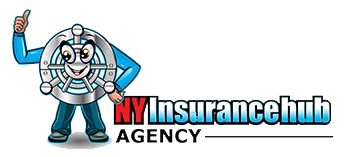One of the most unpleasant accidents for a motorist is hitting a deer or other wild animal or livestock.
The times of year that motorists in areas with deer, moose or elk are most likely to collide with one of the creatures are October and November, during mating season, as well as spring after the does have given birth to a new generation.
But if you live in or are ever driving through a rural area, there is always a chance of stray cattle wandering onto the roadway.
Since most of these animals are substantially larger than a human being, the damage to the vehicle can be substantial in an accident.
Are you covered for hitting an animal?
The key coverages that would pay for your car repairs are either collision or comprehensive. It all depends on the nature of the accident. You should have these coverages anyway, but they are optional and sometimes people don’t purchase them to avoid the additional premium.
Comprehensive coverage – Comprehensive coverage would cover the cost of repairing the damage if you hit the animal as it walked on the roadway. Accidents with animals walking in front of your vehicle are covered by comprehensive because these accidents are considered out of your control.
Collision coverage – This coverage would pay if the animal you hit was lying dead in the roadway (possibly having been hit by another vehicle). Collision pays because if it was motionless on the roadway, there is a reasonable assumption that you should have been able to stop or maneuvered around the creature to avoid hitting the carcass.
Tips to avoid animal collisions
- Be especially alert when driving in areas near forests and farms, and especially at dawn or dusk when animals are most active.
- Watch your speed, especially at night.
- Constantly scan your surroundings. If you have passengers, ask them to keep an eye out for animals.
- If you see one animal, there may be more since they will often travel in groups.
- If you see animals on the road, take your foot off the gas and gently brake. You may want to consider putting on your hazard lights to alert drivers behind you.
- Most importantly: Always wear your seatbelt.
If you hit an animal
- Pull over to a safe location and turn on your hazard lights.
- If you get out of your car, stay off the roadway.
- Call 911 if anyone is injured.
- Call the local police if the animal is injured, blocking traffic or is creating a hazard for other drivers.
- Do not approach the animal, especially if wounded.
- Inspect your vehicle and document any damage. If there’s damage, call the police and your insurance company to report the accident.
- If your vehicle seems unsafe to drive, call a towing company.
- If you can drive your car, check underneath for any leaking fluid. Also check for broken lights or other damage that could make it unsafe to drive.

